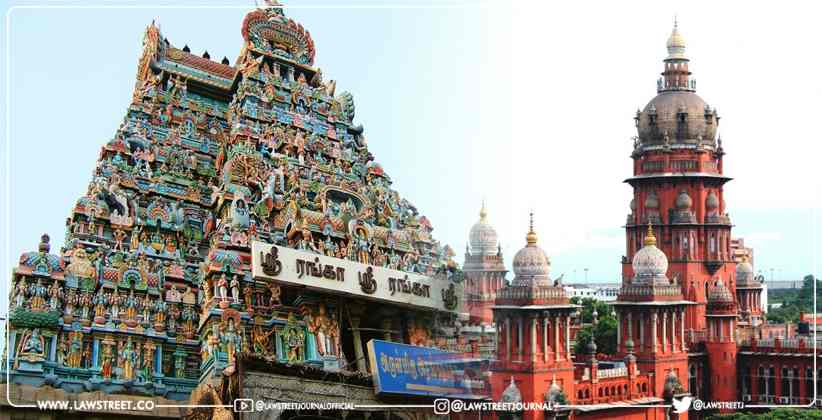The executive officer of the Srirangam Lord Ranganathswamy temple made a complaint against Activist Rangarajan Narasimhan through a police complaint. He alleged that the statements made by Rangarajan Narasimhan through his social media posts were wild and calculated to cause alarm in the minds of the devotees.
Acitivist Rangarajan Narasimhan however said, that he was only trying to bring out the various wrongdoings of the temple administration and nothing else.
The temple activist thus approached the Madras High Court with this present petition. Mr Venu Srinivasan, ex-chairman of the Board of Trustees of Sri Ranganatha Swamy Temple, is also made one of the respondents to the present petition.
Justice GR Swaminatthan, Madras High Court while quashing two FIRS against Temple Activist Rangarajan Narasimhan said that Section 199 of the Criminal Procedure Code puts limitations on the registration of FIRs in matters of defamation. Section 199 mandates that the courts do not take cognizance in defamation matters unless the complaint has been made by some person aggrieved of the offence
When the matter was adjudicated, the single judge bench also raised some questions about the administration of temples.
"Should they (temples) continue to be under the thumb of the government? Should not the government professing to be secular treat all religions at par? Are not knowledgeable and committed activists like Shri.T.R.Ramesh justified in arguing that the government should exercise the same degree and level over temples as are exercised over churches and mosques? Such questions and thoughts cross my mind because the petitioner before me is not only a passionate devotee but also an activist."
The Court held that the FIRs were not maintainable as the offences fall under Section 500 of the Indian Penal Code.
The court then considered if the offence U/s 505(2) i.e. Statements creating or promoting enmity, hatred or ill-will between classes has been committed by the petitioner. The court to this opined that the marks made by temple activist Rangarajan Narasimhan are those made by a Vaishnavite against the administration of a Vaishnavite temple and its execution officer. The Activist has not incited any one group against the other. Thus, offence has not been committed U/s 505(2).
To this the Bench cited the case of Bilal Ahmed Kaloo Vs. State of Andhra Pradhesh (1997)
The common feature in Sections 153A and 505(2) being the promotion of feeling of enmity, hatred or ill-will "between different" religious or racial or linguistic or regional groups or castes and communities, it is necessary that at least two such groups or communities should be involved. Further, it was observed that merely inciting the feeling of one community or group without any reference to any other community or group cannot attract either of the two Sections. The petitioner's allegations do not involve two groups at all.
In the FIR against the temple activist Rangaraja Narasimha the complainants had also invoked Section 25 of the Information Technology Act 2000. The court while comprehending the same said that mentioning the same in the FIR was against the law.
"...In an essay published in (2014) PL December 76 on Frauds and Cyber Frauds in Banking Sector, it is mentioned that the Information Technology Act, 2000 has made the banks liable for both criminal and civil action. In the footnotes, Sections 65 to 74 are referred under the former category while Section 43 to 45 are referred under the latter category. The statutory scheme is very clear and admits of no doubt. Section 45 can be invoked for the purpose of recovering compensation under the circumstances set out in the provision itself. It is not a substantive offence."
The court highlighted that Tamil Nadu is a land of temples and temples have played a prominent role in its culture. The court also noted that the temples in Tamil Nadu are in a deplorable state.
Lands endowed for their maintenance have been gobbled up by private interests. Antique idols have been stolen and smuggled overseas. The temple staff are paid a pittance. Thousands of temples are facing utter neglect. Even poojas are not being performed. Much needs to be done to revive their glory"
The present petition of the temple activist was allowed by the court U/s 482 of the CrPC, to quash the Criminal Proceedings.
There can be no place for force or violence even in the slightest degree. Of course, I am not here to dish out sermons to the petitioner. I am no Prashant Kishor. The petitioner has not come to me for consultation. He has come seeking adjudication and I better confine my role to that. the court observed.
The court thus, from all the reasons which followed held, that none of the FIRs against the temple activist were maintainable from any angle.
Case Title: Rangarajan Narasimhan v. Inspector of Police, Srirangam Police Station & Ors.







